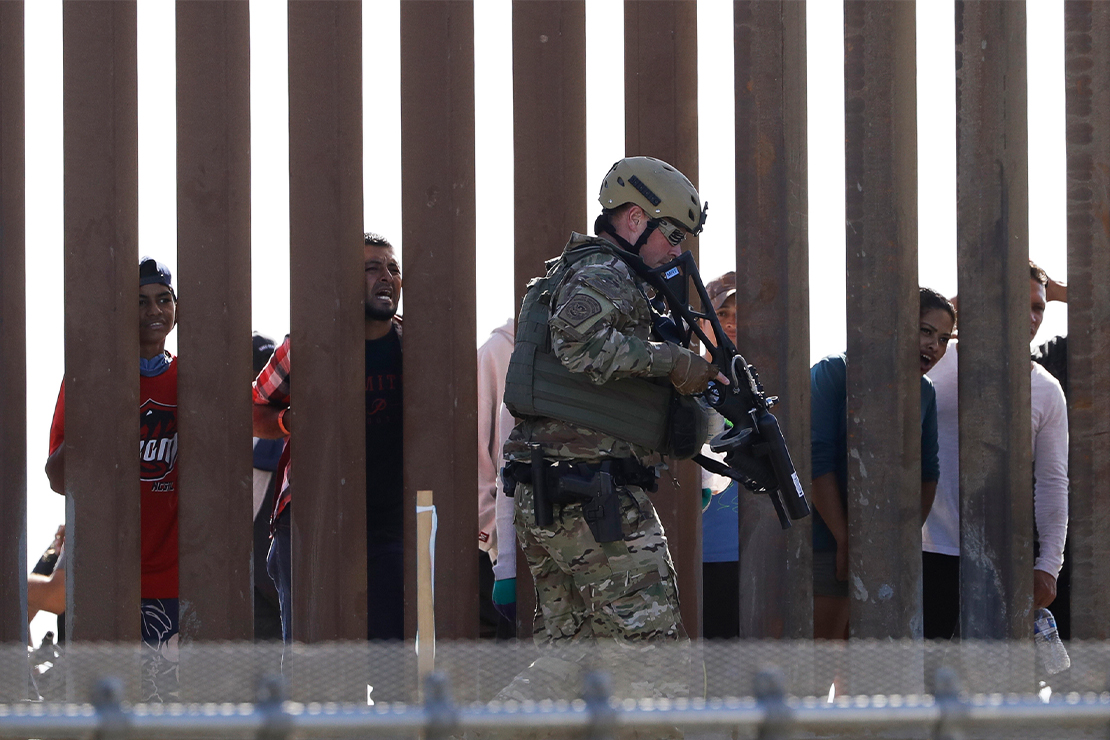

The Supreme Court recently dealt a blow to federal police accountability in Egbert v. Boule. The case, in which the ACLU filed an amicus brief, centers on Robert Boule, who runs a bed-and-breakfast on the U.S.-Canada border. Boule sued Border Patrol agent Erik Egbert for damages for violating his rights under the First and Fourth Amendments to the U.S. Constitution.
The court ruled that Boule is not entitled to seek money damages for the harm caused by Egbert’s excessive force and retaliation.
When Egbert entered the inn without a warrant to investigate a guest staying there, Boule stepped between the guest and the agent and asked the agent to leave. Egbert then threw Boule to the ground, injuring him. After Boule exercised his First Amendment right to file a complaint and administrative claim with Egbert’s supervisor, the agent retaliated against him by prompting multiple unfounded investigations into Boule.
The court ruled in a 6-3 decision that Boule is not entitled to seek money damages for the harm caused by Egbert’s excessive force and retaliation. For over 50 years, under the Supreme Court’s ruling in Bivens v. Six Unknown Named Agents, people have sought money damages against federal agents for violating their constitutional rights. But the court called Boule’s case a “new context” for Bivens liability and would not allow his claims. While the ruling further limits people’s ability to hold Border Patrol agents accountable in court, and undercuts an important deterrent to misconduct, it did not sanction the agent’s unconstitutional actions or grant agents permission to violate people’s rights in the future.

Here are four things you need to know about the ruling:
The court’s decision in no way changes your constitutional rights when interacting with border agents in the border region. While the facts of the case involve Border Patrol’s intrusion of the inn without a warrant, the court’s decision does not sanction those actions.
Border Patrol, and its parent agency Customs and Border Protection (CBP), are bound by constitutional limitations, which prohibit agents from entering your home without a warrant. The Fourth Amendment of the Constitution protects against arbitrary searches and seizures of people and their property, in the border region and beyond. Within 25 miles of the border, as permitted by a separate statute not at issue in this case, Border Patrol is permitted to enter private property, such as your yard or ranch land, without a warrant but is explicitly barred, even that close to the border, from entering a “dwelling,” such as your house, without a warrant.
The court has narrowed the options to seek justice for border agents’ violations of constitutional protections in the border region.
Border Patrol also remains obligated to respect a broad range of other constitutional rights. For example, a Border Patrol agent cannot lawfully pull you over or otherwise detain you without “reasonable suspicion,” which means the agent must have specific, articulable facts that make it reasonable to believe you committed or are committing a violation of immigration or other federal law, not just a hunch. A Border Patrol agent also cannot search you or your belongings without your voluntary consent, unless they have probable cause, a higher standard requiring a reasonable belief that an immigration violation or crime has occurred. You always have the right to remain silent and say you wish to speak with an attorney.
In other words, your constitutional rights are still intact, even in the border region, but the court’s decision will make it more difficult to hold federal agents accountable when they violate those rights. By further cutting off the ability to seek money damages under Bivens, the court has narrowed the options available to seek justice for border agents’ frequent violations of constitutional protections in the border region.
Much has been made of the 100 mile border zone, but you have the same constitutional rights within the border zone as you do anywhere else in the country. There are only two narrow circumstances in which the Border Patrol is permitted to act outside of normal Fourth Amendment limitations on searches and seizures.
Outside of these specific circumstances, all other constitutional protections apply within the border zone, and to individuals who interact with Border Patrol agents. The 100 mile border zone is not a Constitution-free zone.